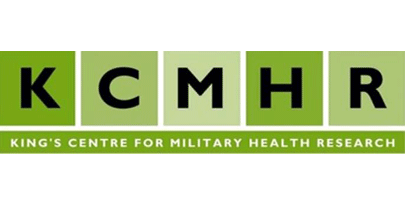PhD Project Investigating the Rate and Health Impacts of Military Sexual Trauma in Female UK Ex-Service Personnel
What is Military Sexual Trauma?
Military Sexual Trauma (MST) is a term referring to any experience of sexual assault and/or harassment during an individual’s military service, regardless of who the perpetrator was, whether it happened during deployment, or where in the world it happened.
What do we already know?
According to existing research, MST is more commonly reported by women than men, and is associated with significant health consequences, such as posttraumatic stress disorder (PTSD), substance use disorders, depression, eating disorders, suicidal ideation, and physical health problems. The significant health implications associated with MST means it is crucial that services in the UK are adequately informed and equipped to support individuals with these experiences.
Most research surrounding MST and its consequences comes from the United States with very little known in UK circumstances. Some initial research in the UK has found that sexual assault and sexual harassment during military service predicted harmful alcohol use, PTSD, and higher physical conditions (such as pain, fatigue, stomach issues) because of distress in women veterans. However, this research was conducted with women connected with a charity supporting women ex-service personnel (veterans), which means this sample may be unique in their engagement and access to support services. Research with community samples, who are perhaps less likely to be engaged in support services, is needed to make sure that UK services can effectively understand and support those with experiences of MST.
What will Tamara’s PhD focus on?
This PhD will be the one of the first UK studies of MST and related consequences in a community sample of female ex-service personnel and is nested within the King’s Centre for Military Health Research (KCMHR) Health and Wellbeing Cohort Study. Over the course of this project, we hope to gain an idea of the estimated rate of MST in the UK, as well as key health outcomes and related implications for help-seeking and support services.
The project will be comprised of three parts:
- A systematic review, which is currently underway, will investigate the mental health impacts of MST in women serving and ex-serving personnel.
- A quantitative survey will ask about participants’ experiences of sexual trauma before, during and after military service, as well as experiences of eating disorders and female health experiences. This survey will be sent to female ex-service personnel who participated in Phase 4 of the KCMHR Health and Wellbeing Cohort. This survey data, along with already collected health data from Phase 4 of the KCMHR Cohort study, will be used to explore potential health outcomes associated with MST.
- Interviews with female ex-service personnel with experiences of MST will explore the implications of MST for help-seeking and disclosure.
Findings from this project will be used to inform UK health and voluntary sector services to ensure that they can effectively support female ex-service personnel with experiences of MST.
Who is carrying out this research?
Tamara Obradovic is a second year PhD student at King’s College London, based in the King’s Centre for Military Health Research at the Institute of Psychology, Psychiatry and Neuroscience. After completing an integrated master’s in psychology at the University of Bristol in 2022, Tamara joined KCMHR to start her PhD in February 2023.
This project is supervised by Professor Nicola Fear, Dr Marie-Louise Sharp and Professor Domnic Murphy. This PhD is in partnership with Combat Stress and is funded by the London Interdisciplinary Social Sciences Partnership, within the Economic and Social Research Council (ESRC).
Want to Know More?
For more updates on this study and other work being conducted at KCMHR, please follow @kcmhr on X (formerly Twitter) and take a look at the most recent blog posts.
